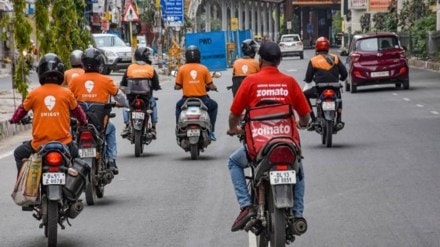Food-delivery, ride-hailing and e-commerce platforms will now have to set aside a slice of their business for worker welfare, with the implementation of the Labour Code on Social Security, 2020. For the first time, gig and platform workers have been formally brought under the social security framework, and aggregators like Zomato, Swiggy, Uber, etc, will be required to contribute 1–2% of their annual turnover toward social security schemes designed specifically for this workforce. The contribution is capped at 5% of the total payments made or payable to workers in a financial year.
Benefits and mandated platform contributions placement
The Code defines gig workers as individuals who earn through work arrangements outside the traditional employer–employee relationship, closing a longstanding gap where millions of app-based drivers, riders and delivery partners operated without any formal safety net. These workers would now gain access to benefits that were previously inaccessible like healthcare, accident and life insurance, maternity benefits, PF-like old-age protections, and other welfare schemes funded through the contributions mandated from platforms.
Operational framework and state initiatives placement
To ensure that benefits follow workers across cities, the government will issue an Aadhaar-linked Universal Account Number. Whether a delivery worker relocates from Mumbai to Bengaluru or drives for multiple platforms simultaneously, their entitlements are designed to remain portable and accessible. Registration has been made compulsory for all gig and platform workers above 16 years of age, based on Aadhaar and self-declaration. Governments may also operate help centres and helplines to support enrolment and grievance redressal.
The system will be overseen by an expanded National Social Security Board, responsible for designing, monitoring and reviewing schemes for unorganised, gig and platform workers. When dealing with gig workers’ welfare, the Board will include representatives from both aggregators and workers. The contributions collected from platforms will be pooled into a central Social Security Fund that will finance nationwide worker-welfare schemes.
States are moving in parallel with their own frameworks. Karnataka has already notified its Platform-Based Gig Workers (Social Security and Welfare) Act, 2025, which goes even further by imposing a welfare fee of 1–5% per transaction and establishing a state-level Gig Workers Welfare Board and Fund. Telangana has cleared its draft Bill to provide social security coverage to nearly 300,000 gig workers across transport, delivery, domestic work and logistics.
